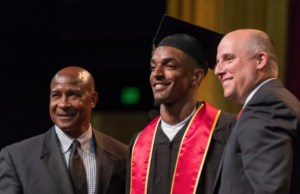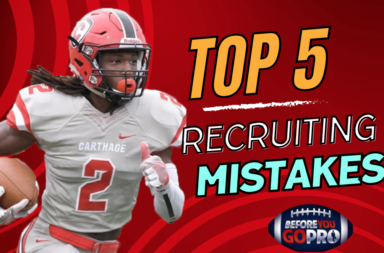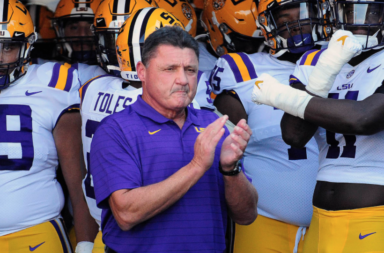As college football recruiting continues to pick up and athletes go on official visits to universities. We wanted to prepare you with key questions that need to be asked and indicators that need to be evaluated on your trip. Your initial college decision isn’t the “Be All End All,” to your future success as a student-athlete, but it’s a decision that you definitely don’t want to take lightly. Keep in mind, a recruiting trip is a glorified first date. It’s the universities job to make you fall in love with their school. Just make sure that in the midst of everyone whispering “sweet nothings” in your ear, that you have the discernment to make a sound college decision.
Recruiting Trip Checklist:
1.) Graduation Rates – Knowing the Grad Rates of the schools that you may be considering is a must! If you don’t graduate “You Missed the Boat.” Schools that focus on graduating their players always do. Make sure graduation rates are at least 70% or better, especially if you have options. It is also key, if you are an African-American athlete, to ask the Grad Rates for the African-American players on the team, which are traditionally lower than the rest of the team.

2.) Internships/Life After Football Opportunities – Can the coaching staff provide you with examples of former athletes who are doing well outside of football? Maybe someone has become a doctor, mayor, tv personality, NFL agent, etc. It’s essential that you know what programs and people, are in place to help groom you for off-the-field advancement and growth?
3.) 3rd String Feedback – Superstars, starters and players hosts, will typically have good things to stay about the program. However, if the people at the bottom of the totem-pole feel neglected, how do you really know how you’ll be treated once you are on campus (click on video below )?
4.) Player Majors – Outside of Graduation Rates, the types of Majors the football players are in will tell you a lot about how the program views the academic prowess of their athletes. Real student-athletes should major in the subjects that they are truly interested in. Not the subjects that guarantee athletic eligibility today and lack of opportunity tomorrow! If a school really wants you apart of their program, they should let you study the subjects that interest you and be willing to work around your class requirements. If 70% of the team has a Sociology major, that should be an eye-opener for you.








